Affiliate disclosure: This post may contain affiliate links. Please see our Privacy Policy.
Cheesemaking recipes can be hard to find these days, but they’re becoming more common as this old-time skill becomes a popular hobby in the kitchen. Cheesemaking doesn’t have to be difficult, and I’ve included delicious recipes to keep you culturing, whether you’re a beginner or a more advanced cheesemaker.
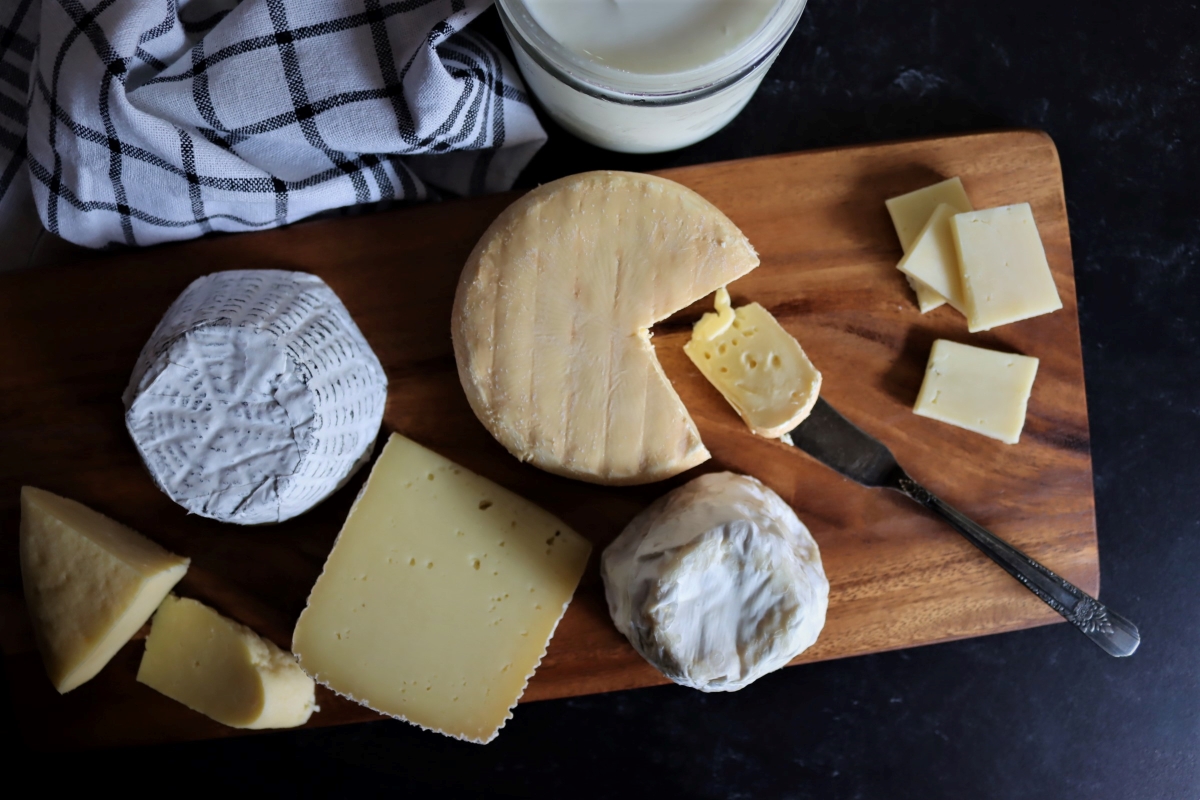
Table of Contents
- Cheesemaking Books
- Cheese Making Recipes
- Simple Homemade Dairy
- Simple One-Hour Cheesemaking Recipes (Not Cultured)
- Simple Rennet Cheesemaking Recipes
- Beginner Cultured Cheeses (& Other Cultured Dairy)
- Minimal Equipment Cheeses
- Whey Cheeses
- Soft Bloomy Rind Cheeses
- Beginner Hard Cheeses
- Intermediate Hard Cheesemaking Recipes
- Advanced Cheesemaking Recipes
- DIY Cheese Making Ideas
- Food Preservation Recipes
Home cheesemaking is an incredibly satisfying (and delicious) hobby, and you don’t have to have a cow at home to get started. Actually, just about every cheese can be made with store-bought milk, and many are done in as little as an hour!
I’ve organized this list of cheesemaking recipes from the easiest cheeses to the most complex.
The simple ones require no specialty ingredients, and they’re ready in as little as 1 hour. From there, I take you on to cultured cheeses that take a bit longer and then onto simple pressed cheeses that can be made without specialized equipment.
Finally, I’ll give you some recipes for advanced cheeses that you can work towards, like long-aged parmesan-style cheese and more.
Before you get started, I’d strongly recommend that you read my beginner’s guide to cheesemaking which takes you through all the basics of making cheese at home, including common steps, ingredients, and equipment.
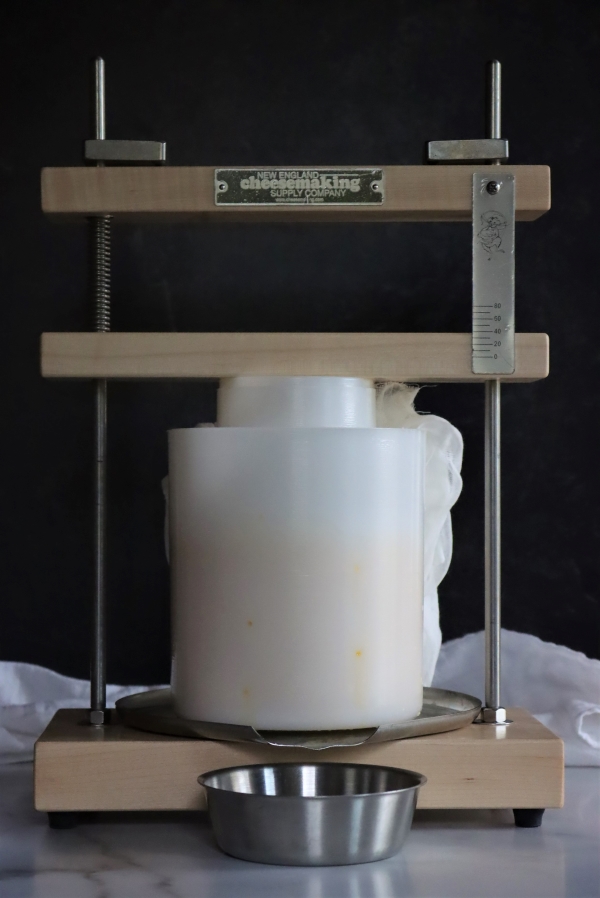
Cheesemaking Books
This list of cheesemaking recipes is just the beginning, and if you’re really interested in making cheese at home, these are some of the best cheesemaking books available:
- Home Cheesemaking ~ This is one of the first guides made for home cheesemakers, and still one of the best beginner cheesemaking books available.
- Artisan Cheesemaking At Home ~ Focusing on more intermediate recipes, this is a good choice for someone hoping to try more complex methods.
- Mastering Artisan Cheesemaking: The Ultimate Guide for Home-Scale and Market Producers ~ The title says it all, this book is really comprehensive and covers everything you need to know from start to finish. It’s not targeted at beginners, and it gets quite technical…perfect for this cheese nerd.
- The Art of Natural Cheesemaking ~ This covers old-school cheesemaking practices, using farm-fresh raw milk and without using store-bought cultures. An excellent guide for both beginners and more advanced cheesemakers, but only if you’re able to obtain fresh raw milk.
Cheese Making Recipes
I’ve broken this list of cheesemaking recipes down by both type and difficulty. Some cheese recipes require minimal equipment and are ready in as little as 24 hours. Others are still simple, but will take several days…and yet others require complex equipment and will take weeks to months before they’re ready to eat.
The idea is that if you work down the list from top to bottom, you’ll be starting at the simplest and working toward the most complex.
Simple Homemade Dairy
Homemade butter, buttermilk and creme friache are a great place to start working with milk and cultures. They’re not technically “cheese” but they use many of the same techniques and some of the same cultures.
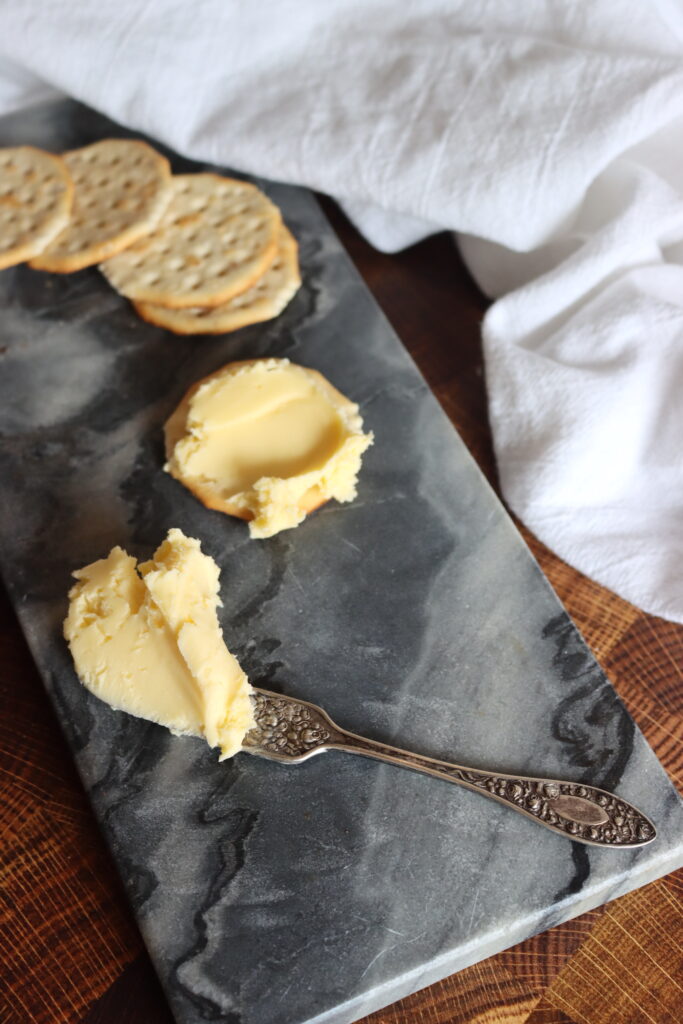
Simple One-Hour Cheesemaking Recipes (Not Cultured)
These cheeses are acid-ripened cheeses, where the curd is separated from the whey with vinegar, lemon juice, or citric acid. They’re not “cultured” cheeses, and the processes at work here are chemical and enzymatic (rather than biological).
Acid sources can be everyday pantry items like lemon juice or vinegar, but sometimes specific recipes will require specific acid types like powdered citric acid or tartaric acid.
- Basic Yogurt Cheese ~ This one’s about as easy as it gets, and all you’re really doing is straining yogurt in cheesecloth until it becomes a soft cheese.
- Maple Yogurt Cheese ~ A maple version of basic yogurt cheese, this one’s delicious as a spread.
- Marscapone ~ This smooth, creamy cheese is sweet and rich, often used in desserts. Traditionally made with tartaric acid (a byproduct of winemaking), it can also be made with citric acid or lemon juice.
- 60-Minute Mozzarella ~ A shortcut mozzarella cheese that’s absolutely delicious and easy to make.
- 30-Minute Mozzarella (No Microwave) ~ Another simple mozzarella recipe, this time without a microwave.
- Paneer ~ A traditional Indian cheese with a firm curd that doesn’t melt. Generally fried or used in curries.
- Queso Fresco ~ Similar to paneer, queso fresco is an easy acid-set cheese from Latin American cuisine.
- Whole Milk Ricotta ~ Traditional ricotta is made with the whey left over after making another type of cheese, but it can also be made with whole milk.
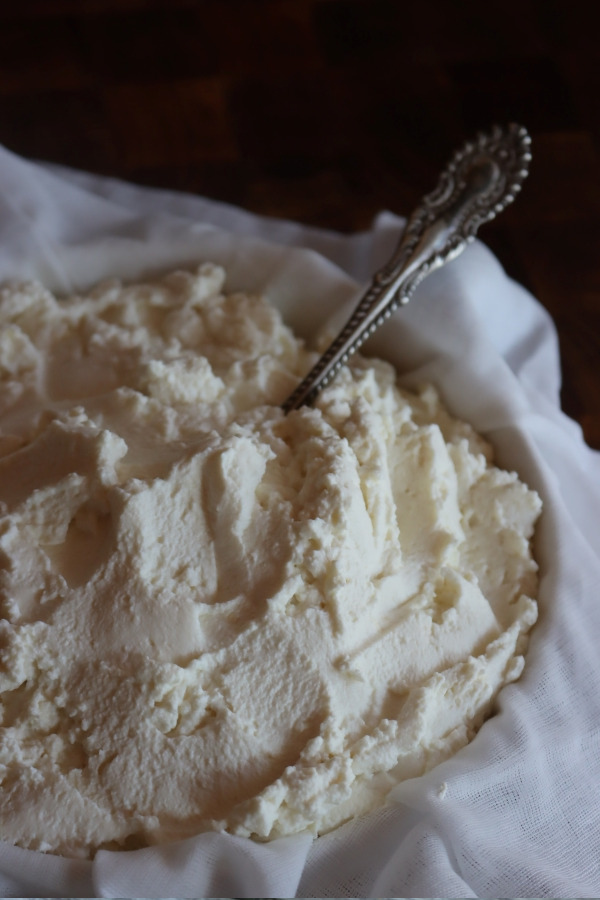
Simple Rennet Cheesemaking Recipes
Once you’ve made a few cheesemaking recipes that only require milk and lemon juice (or vinegar), it’s time to graduate to rennet set cheeses.
Rennet is a natural enzyme that causes curds to separate from whey, and learning to use this specialty cheesemaking ingredient is a big step toward making more complex cheesemaking recipes.
- Simple Rennet Cheese ~ If you’re just learning about rennet cheeses, this is one of the simplest.
- Halloumi ~ A traditional rennet-based cheese that’s easy for beginners.
- Belper Knolle Recipe ~ This one is a heavily seasoned cheese that’s absolutely delicious. It’s mostly acid set, but it does include a bit of rennet to firm up the curds.
- Schiz Cheese ~ A simple rennet set cheese from Northern Italy. This one is made quickly, without cultures or aging.
- Cacioricotta Recipe ~ A simple rennet set cheese that’s been made in Italian Farmhouse kitchens for centuries. The culture is yogurt cultures, so all you really need here is rennet for specialty ingredients.
Beginner Cultured Cheeses (& Other Cultured Dairy)
Once you’re ready to start making cultured cheeses, these simple cultured cheeses are perfect for beginners. They’re ready from start to finish in 12 to 48 hours, and the cultures do all the work while you watch.
Some use rennet to set the curd, and others just rely on acidification from the cheese cultures themselves.
- Icelandic Skyr ~ Often sold as yogurt these days, it’s actually a traditional soft cheese made with culture and rennet. This one’s the perfect way to get your first experience working with rennet.
- Goat Cheese Chèvre ~ This soft goat cheese cultures quickly and is ready in just 24 to 48 hours.
- Farmer’s Cheese ~ A simple curd cheese, similar to ricotta or cottage cheese.
- German Quark ~ This simple cheese is a traditional German specialty, and it’s made by culturing milk with live cultured buttermilk.
- Cream Cheese ~ A simple cultured cheese that turns into a luscious spread with rennet and culture.
- Creole Cream Cheese ~ A unique cream cheese that’s like a cross between farmer’s cheese and sour cream.
- Milk Kefir Cheese ~ This basic cheesemaking recipe uses kefir to set curds into a cheese.
- Petit Suisse Recipe ~ A simple cultured cheese that stays soft and is often served for breakfast. It’s heavy in fat and it’s like a supercharged creme Fraiche.
- Raw Milk Cottage Cheese ~ This raw milk cottage cheese uses the natural cultures present in raw milk to make a simple cheese, as it was made historically. You can also make it using a mesophilic starter culture and store-bought milk.
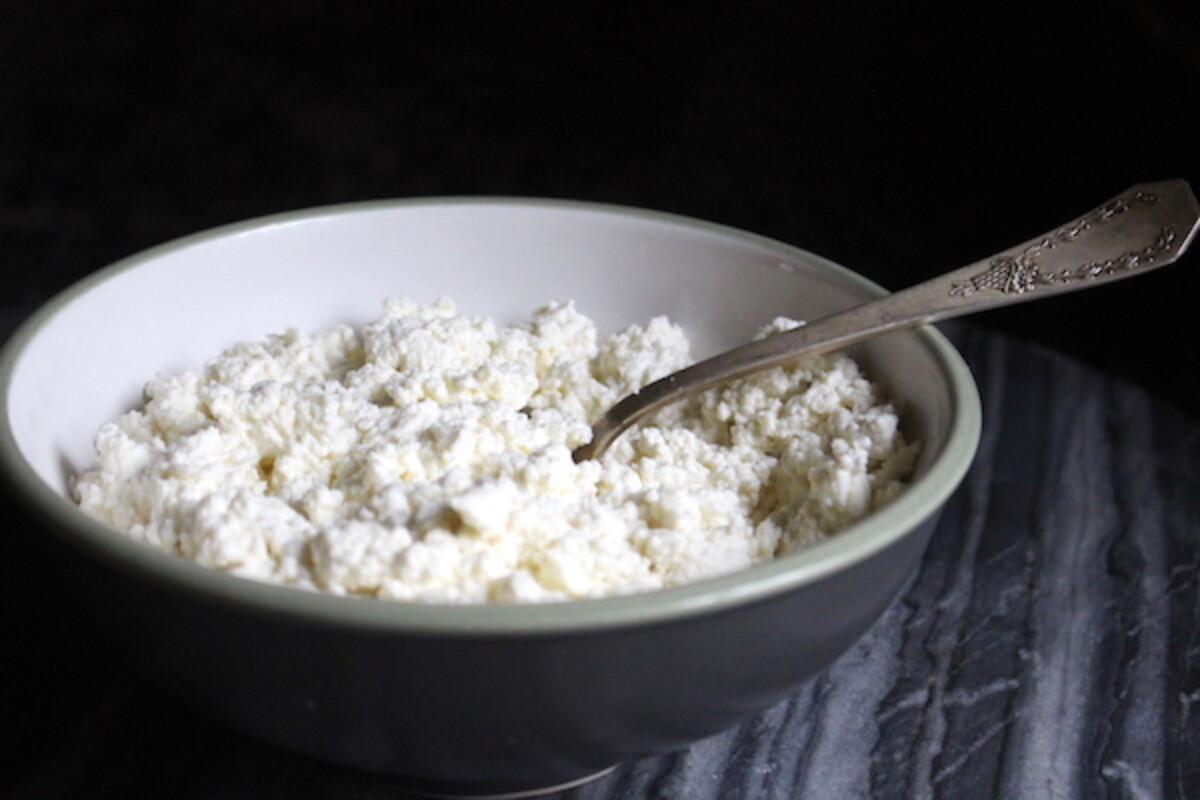
Minimal Equipment Cheeses
These cultured cheeses are a bit more time-consuming than the basic soft cultured cheeses above. A few of these even involve short aging periods, if you’re ready to dip your toe into affinage (the fancy word for aging cheese).
Jack cheese can be made with minimal equipment, but it’s still a satisfying firm-pressed cheese that’s easy to make at home. Others like, cultured mozzarella, will take all day, but they’re well worth the effort.
- Jack cheese ~ A great first-pressed cheese, as it presses with minimal weight and can be pressed under a cutting board with a gallon jug as a weight.
- Pepper Jack ~ Pretty much the same as jack cheese, but with peppers!
- Feta Cheese ~ This simple cheese gives you a salty, briny firm cheese that’s perfect for salads.
- Cultured mozzarella~ This cheese takes all day to make, though it’s mostly hands-off time waiting (sometimes hours) between steps. It has much more depth of flavor than the quick uncultured 60-minute version.
- Burrata Cheese ~ This is a stuffed mozzarella that’s made with minimal equipment, but it’s not exactly easy. Shaping and forming this cheese is quite tricky, but with practice, you can make it at home without investing in cheesemaking equipment.
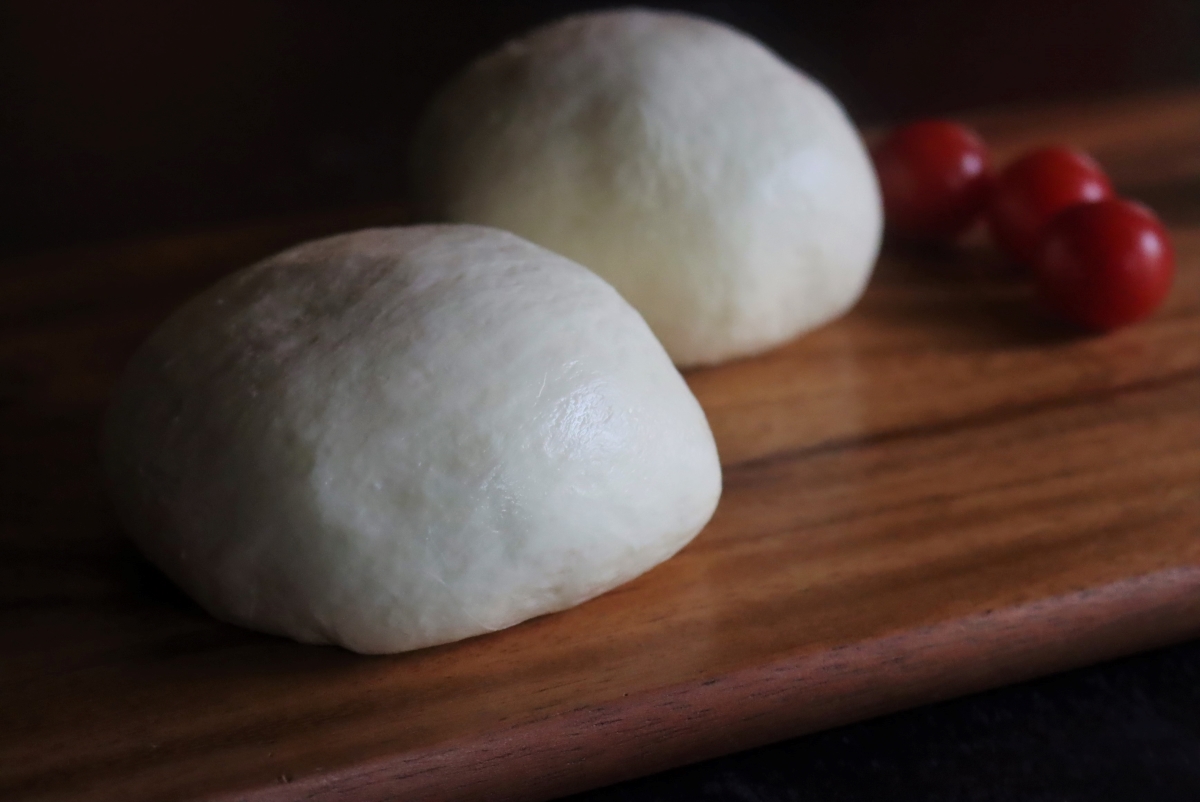
Whey Cheeses
Once you start making homemade cheese, you’ll notice that you have a lot of extra whey. As a general rule of thumb, each gallon of milk will make about 1 pound of cheese, plus about 1/2 pound of whey cheese.
If you toss the whey, you’re throwing away about 1/3 of the cheese!
- Whey Ricotta ~ Simply re-cooked whey will yield delicious ricotta.
- Mysost or Gjetost ~ A Norwegian whey cheese, it’s made by boiling the whey down until it carmelizes into a sweet fudge-like delicacy.
- Mizithra Cheese ~ A traditional whey cheese made from goat’s milk whey.
- Ziergerkase ~ A German whey cheese that’s basically ricotta pressed into a block and then soaked in wine before aging.
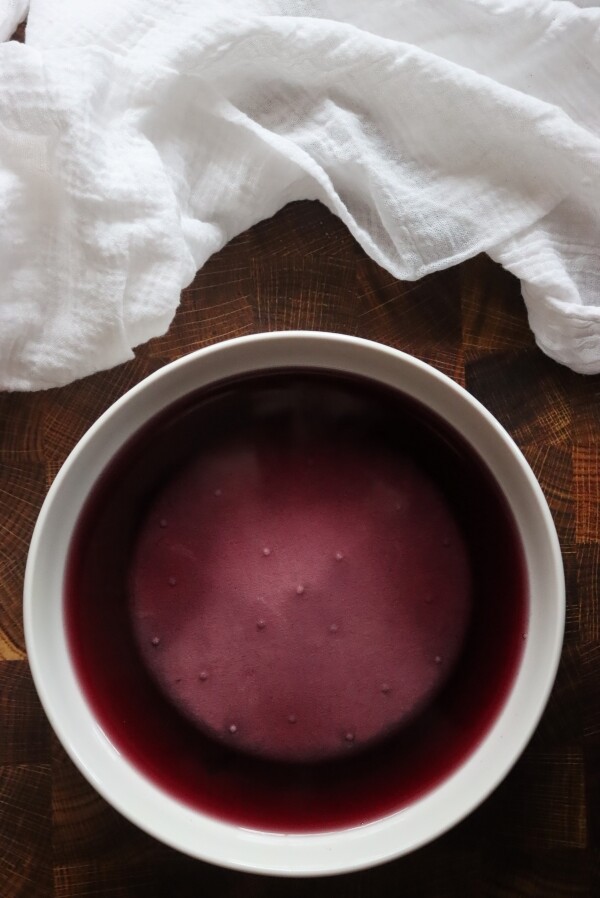
Soft Bloomy Rind Cheeses
These cheeses require mold powders besides the basic cheese cultures, and that creates a bloom on these surface-ripened soft cheeses.
While the cheeses themselves are very easy to make…aging them can be a challenge. You’ll need a cool and very humid aging space, which might be hard to achieve without creating a home cheese cave.
- Crottin ~ A small bloomy rind goat cheese.
- Pouligny St Pierre ~ A pyramid-shaped wrinkly skinned goat cheese.
- Valencay ~ An ash-covered goat cheese with a bloomy rind.
- Brie ~ A classic that’s easy enough to make at home if you can control humidity.
- Ashed Goat Cheese ~ This basic ash-covered goat cheese recipe is absolutely delicious.
- Camembert ~ Another version, again, tricky without humidity control.
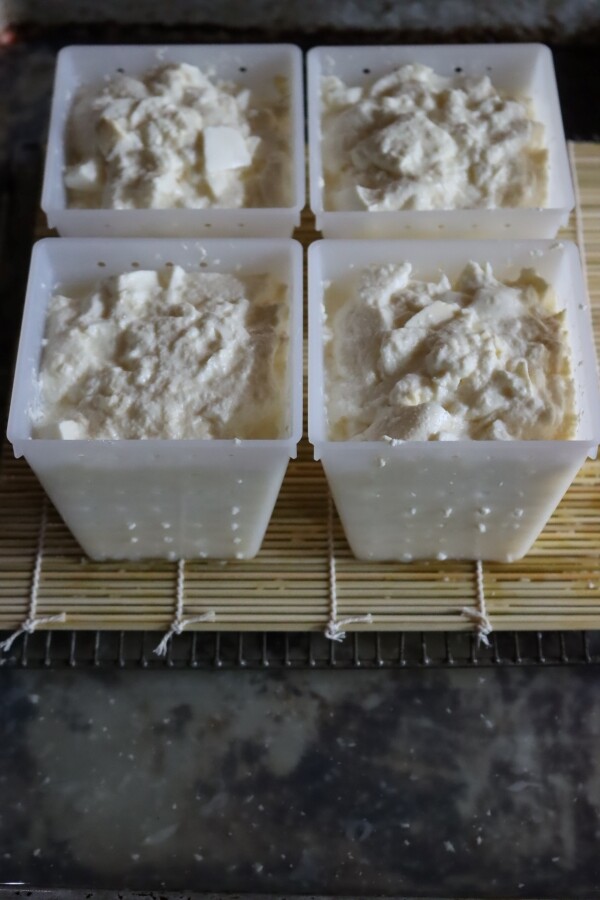
Beginner Hard Cheeses
These cheeses require pressing with substantial weight, and you’ll need a cheese press of some sort.
- Colby Cheese ~ A cheddar-like cheese with higher moisture content.
- 18th Century Farmhouse Cheddar ~ This simple farmhouse cheese is made with raw milk and no cultures. It can also be made with pasteurized milk using cultured buttermilk as a starter culture.
- Beginner Alpine Tomme ~ Alpine cheeses are notoriously difficult to make and age, but this one is designed for beginners. It’s not an “easy” recipe, but it is a good place to start if you’ve got your eye on more advanced alpine cheeses.
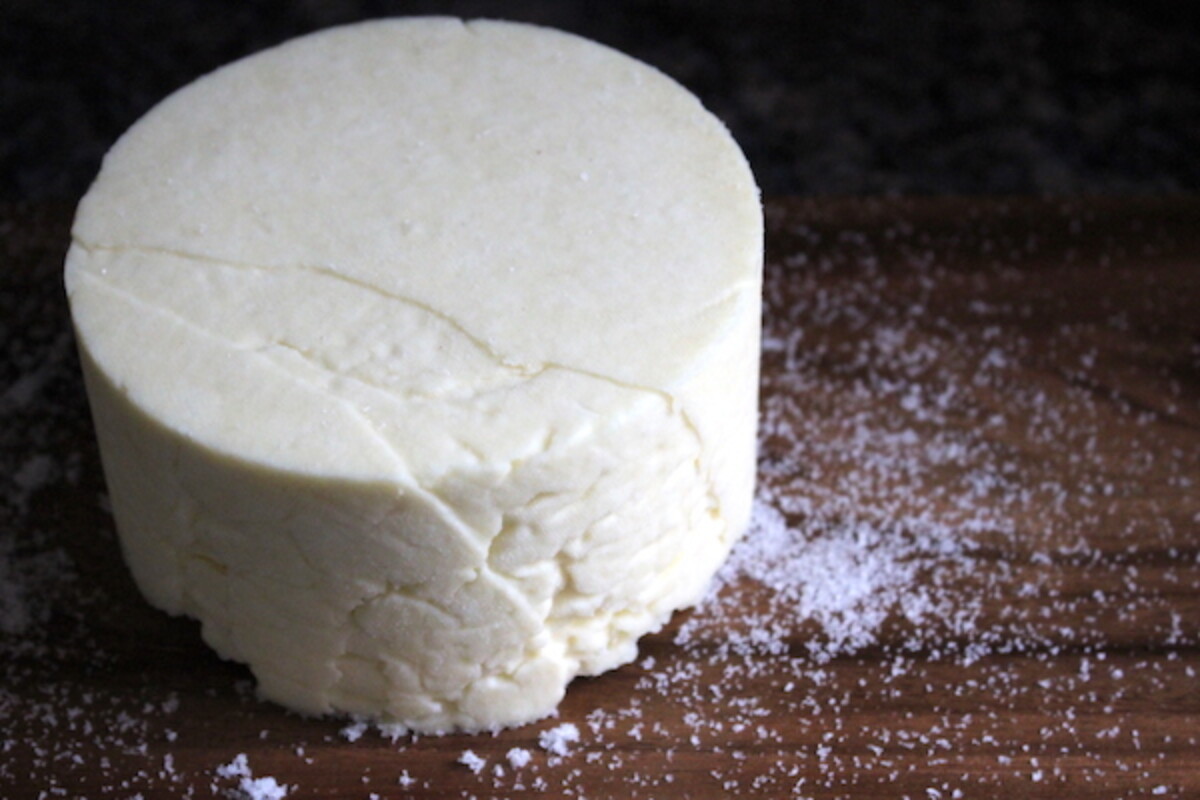
Intermediate Hard Cheesemaking Recipes
Most of these “hard cheeses” are intermediate in terms of skills, but they will require a bit more equipment than other types of homemade cheese.
You’ll need a good cheese press, ideally one that can get up to around 50 lbs of pressure. You’ll also need a good aging space, especially for long-aged cheeses like parmesan.
Believe it or not, homemade parmesan comes together in just a few hours…and then it’s aged for 6 to 12 months…creating a dependable aging space (and developing the patience to wait) are the hardest parts.
- Parmesan Cheese ~ This one comes together quickly, but you’ll need a dependable aging space to keep it for up to a year or more.
- Asiago Cheese ~ One of my favorite Italian cheeses, Asiago has plenty of flavor and it’s not too hard to make.
- Gouda ~ An intermediate semi-hard cheese that’s usually waxed to maintain moisture levels.
- Jarlsberg Cheese ~ A large holed alpine style cheese, this makes something similar to Jarlsberg cheese in the stores.
- Wensleydale ~ A firm, and slightly flaky cheese that features heavily in the show Wallace and Grommit.
- Manchego Cheese ~ A traditional Spanish cheese that’s perfect for serving alongside quince paste.
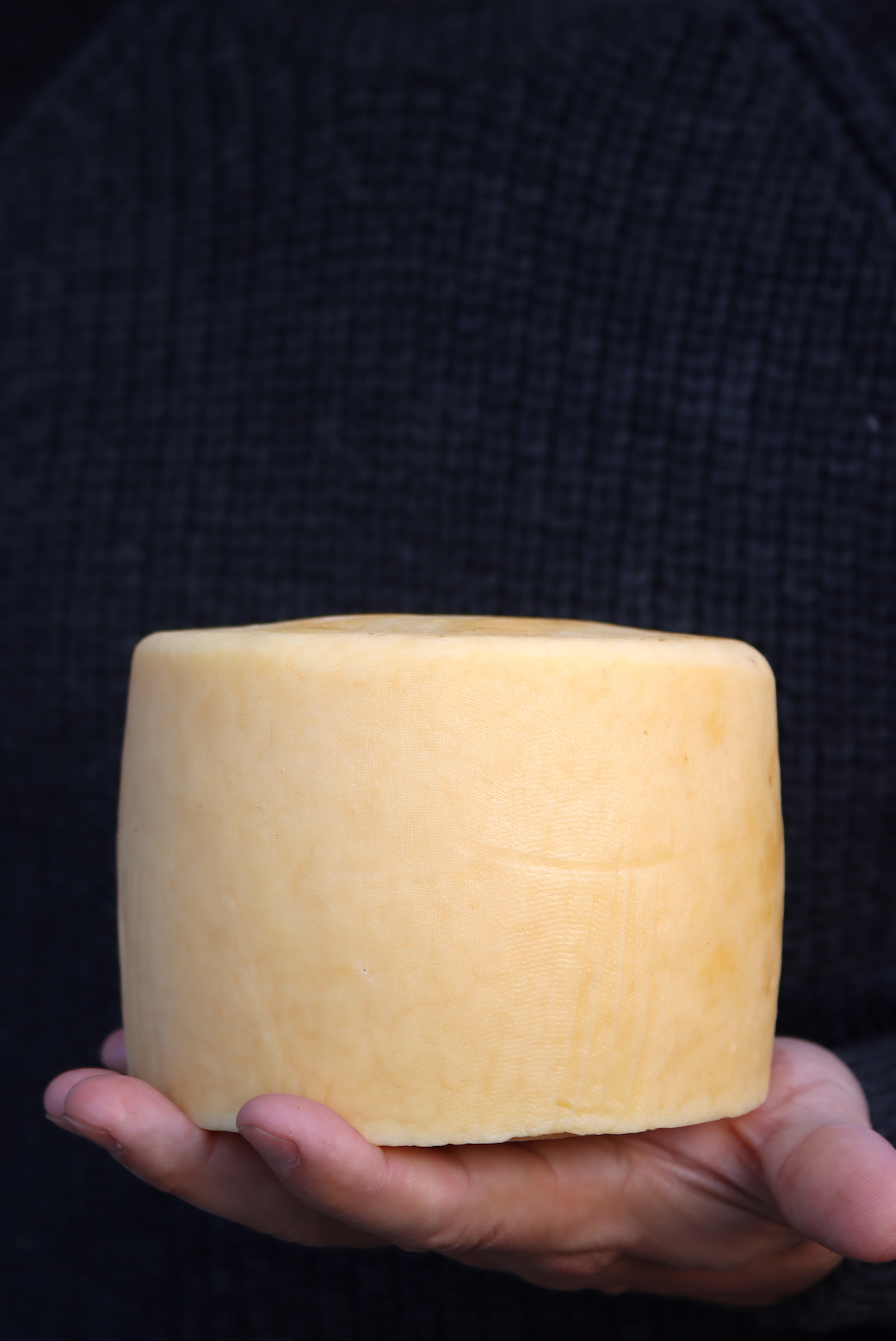
Advanced Cheesemaking Recipes
These cheeses are finicky, and require very specific ingredients and aging temperatures.
Alpine cheeses, for example, need special cultures to create characteristic holes, but they also need different temperatures at different points in the aging process. That often means a dedicated aging space away from your other cheeses…which is difficult even for the most devoted home cheesemaker.
- Gruyere ~ Another alpine-style cheese, and one of my personal favorites.
- Blue Cheese ~ The extra step of adding and tending the penicillin cultures here can be tricky.
- Shropshire Blue Cheese Making Recipe ~ A traditional British blue cheese that’s bright yellow/orange with streaks of blue penicillin.
- Washed Rind Monk’s Cheese ~ A labor of love, traditionally made by monks with a lot of time on their hands, this cheese is worth the effort.
- Swiss Cheese ~ The classic lunchtime special with characteristic holes.
- Cloth Bound Cheddar ~ A true labor of love, this one is tricky to make but not all that hard to age because of the
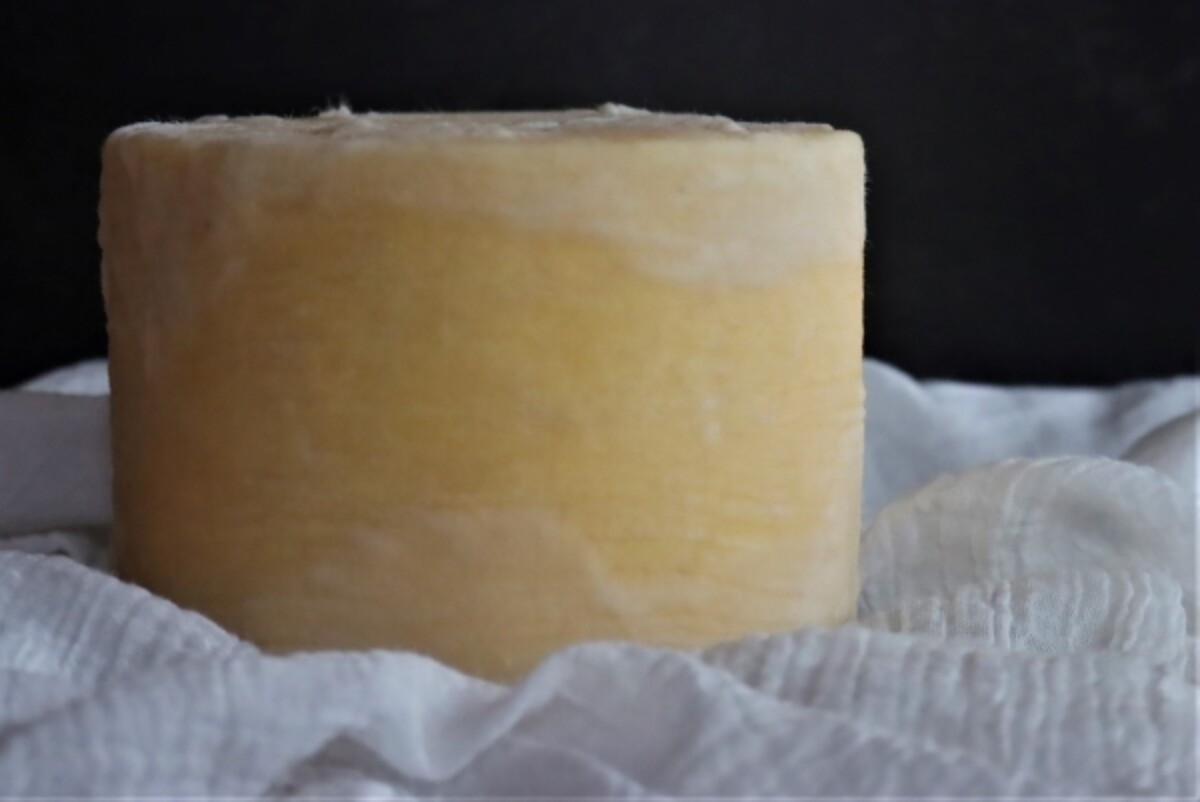
DIY Cheese Making Ideas
Looking for more DIY Cheesemaking Ideas?
- How to Make Thistle Rennet ~ Cultures for Health
- Preserving Cheese in Wood Ash ~ Practical Self Reliance
- Beeswax Cheese Wax ~ Reformation Acres
- How to Smoke Cheese at Home ~ Melissa K. Norris
- DIY Cheese Press ~ Chickens in the Road
Food Preservation Recipes
Cheese isn’t the only thing you can make from scratch at home!
- How to Make Apple Cider Vinegar
- How to Make Pancetta
- How to Make Beef Bacon
- 50+ Pressure Canning Recipes
- 30+ Ways to Preserve Eggs
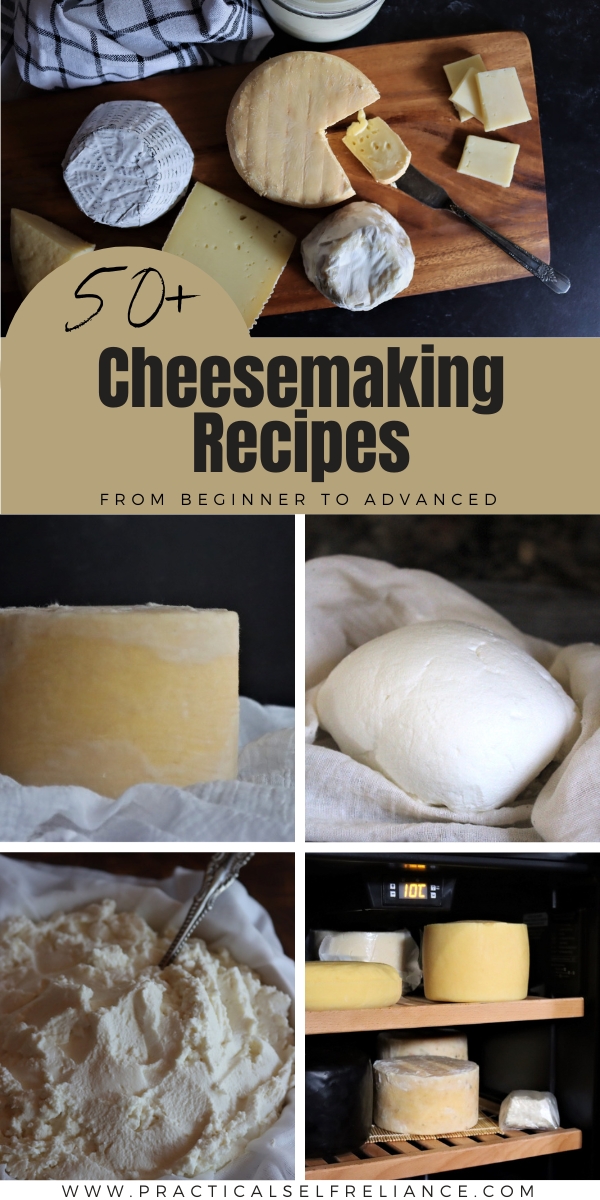
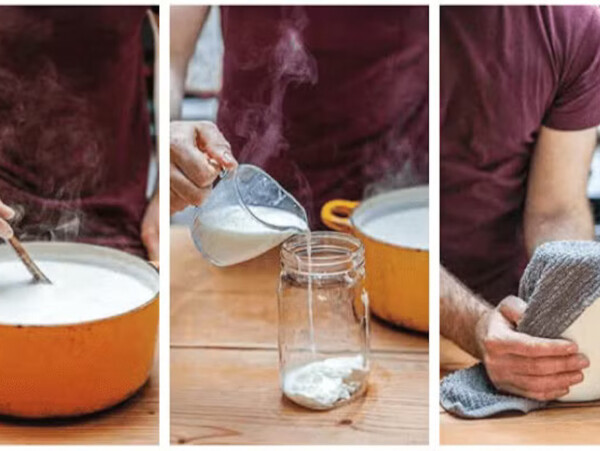
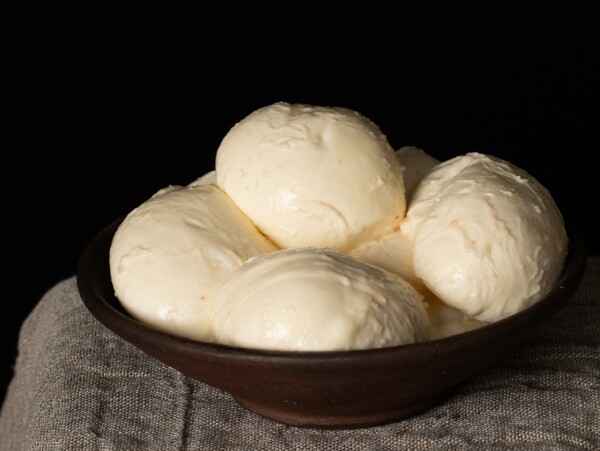
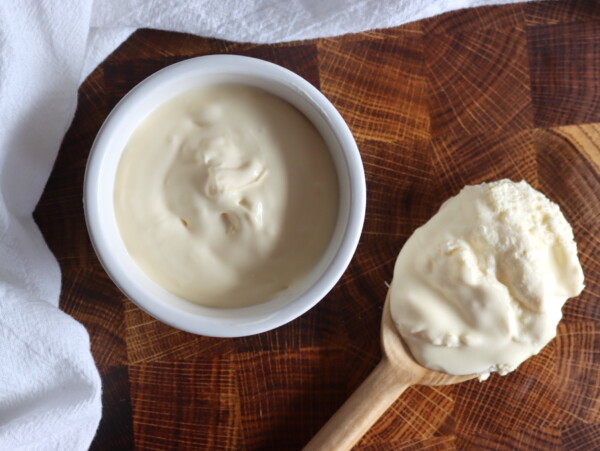
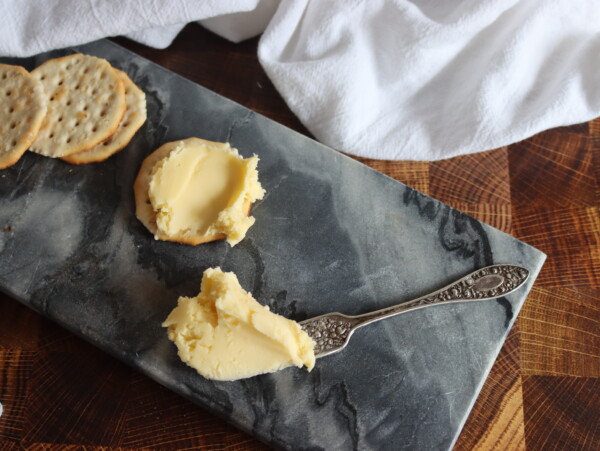





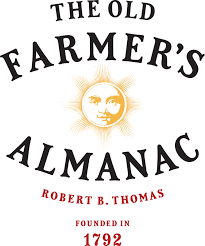

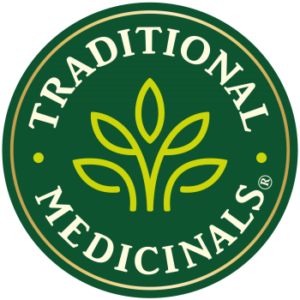

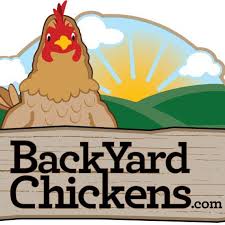
Thank you so much for all of this fantastic information. I absolutely love all of your posts and am excited to start making cheese! So glad I found your page
You’re very welcome. We’re so glad you like it. Keep us posted on your cheesemaking progress.